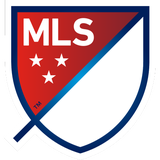
The USMNT and the uncomfortable question of commitment
"Think about who you try to disenfranchise." - Mix Diskerud to Abby Wambach, December 2015
For over a year, an uncomfortable topic has been debated quite publicly by prominent U.S. men's and women's national team players: Foreign-born Americans and their commitment to representing the U.S. national team and the crest over the heart of the jersey they don.
In the social-media-charged age of 2017, any public comment along those lines, one way or another, will be interpreted and spun a bevy of ways. And any clarification of comments can easily be viewed as an admission of guilt—a way to backtrack, placate and become more acceptable in the public eye. It's important to note that not all comments on this topic are created equally. Some absolutely reek of tone-deafness and insensitivity, while others, although not phrased in the most appropriate of ways, may shed light onto deeper chemistry issues inside the locker room.
So when Tim Howard questions the pride level of some foreign-born U.S. players, as he did in interviews in Los Angeles over MLS media day, is he making a sweeping generalization about all U.S. dual-nationals? Or is he, someone who has played for the U.S. for 15 years and seen different iterations of the team, giving a glimpse into the true, harsh reality about the state of the team? Either is possible, but it's incredibly hard for anyone on the outside to know which it is. No matter, it opens an awkward discussion, one that emits reactions across a wide spectrum, including from those closest to the topic.

"It's dangerous stuff where you have to be careful what you're saying," German-born midfielder Jermaine Jones told ESPN FC, in response to Howard, his teammate for both club (last season in Colorado) and country. "With all the respect for Timmy, I feel it's not if you're half American or full-American. It's more what you have in here [your heart].
"If you go on the field and you give everything for this country, then of course sometimes there's a situation where you're not playing good. But it's normal. That can happen to everybody, and that's what you have to understand."
Jones is absolutely right. Pride in the national team isn't exclusive to someone born in the U.S., and when things go south, it's not because of a player's birthplace.
The fact is—as has been reported over the last few years for those following closely enough—the U.S. men's team has not always been tuned to perfect harmony, and roster overhauls haven't always been seamless. As with teams in any sport and at any level, cliques and factions may develop, motivations can differ and unity isn't easily achieved. When results don't go the right way, these issues rise to the surface. That doesn't mean it's only because specific players weren't born in the U.S., though it is possible that it can be a contributing factor depending on individual situations.

Howard clarified his initial remarks to try and say as much.
"Some of them are [dual nationals], but I think others are players who have their roots here in America too. It's not exclusive to them because some of our dual-nationals have been brilliant," Howard told ESPN FC. "Jermaine Jones has been a rock for our national team. He's been one of the heartbeats. Fabian Johnson has been brilliant for us. So, no, that wasn't aimed at any one person in particular."
When it comes to representing a national team, certainly pride in that country and a stake in its fortunes is a factor. It has to be. For some, that may mean that if you're involved in representing the U.S. for a longer time, then you're more personally invested, and you're more likely to be involved for a longer time if you're born or grew up on U.S. soil.
For example, Landon Donovan told Sirius XM Radio last December that, upon being cut from the U.S. World Cup team in 2014, he told Jurgen Klinsmann: "There's at least a few players that are on your World Cup roster that are going that don't care in the same way that I do. I grew up as a part of this whole system. I feel like it is a part of me and I think there's players in that locker room who if you go three and out in the World Cup they'll go back to their club teams and won't even blink twice, whereas if we go three and out I'll be devastated and I think that's a piece that's important."

It's possible there's plenty of truth to that. It doesn't necessarily mean it's an attack on all foreign-born Americans, no matter how it's perceived. It's an individual's statement based on a close-up observation, and it will surely irk anyone who won't entertain the possibility that there's an unbiased foundation and basis for the remark.
Now, if this proves to be an issue of widespread xenophobia and jingoism on the national team, then that will be an absolute shame and disgrace. This is America, a welcoming melting pot full of differing stories and connections to the nation; and for some foreign-born players, their families have sacrificed an immeasurable amount to represent and protect this nation far from a soccer field. If you go back decades, U.S. players born both here and abroad have been important contributors to the national team and equally passionate about playing for the U.S. One of the indelible images of the 1994 World Cup is German-born Thomas Dooley celebrating the USA's win over Colombia running around the field while carrying the U.S. flag.
“The thought that the sons of American citizens who are overseas because they are serving their country in the armed forces have less of a right to play for the United States than someone else is just absurd,” U.S. Soccer president Sunil Gulati told SI's Grant Wahl in 2014. “That sort of thinking is everything America shouldn’t stand for. [These players] were American citizens the day they were born.”
If there are players, foreign-born or not, who see playing for the U.S. as a paycheck or a way to boost their own value and nothing more, then that's a problem. But it's not an excuse to generalize and accuse. There's no place for that, and it's on the manager—now Bruce Arena, who has had his own previous bout with word choice and opinion on dual-nationals—to navigate the issue with class and complete thought, choosing players he think can make the national team the most successful. It's O.K. and healthy for him and others to question players' commitment to the national team. It's not O.K. to do that solely because of anyone's origin.
No matter if you're the U.S. coach, a player or a fan, it would be wise to heed Diskerud's pointed warning from 13 months ago.
This article originally appeared on







































































































































